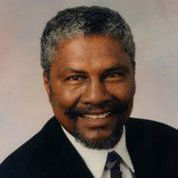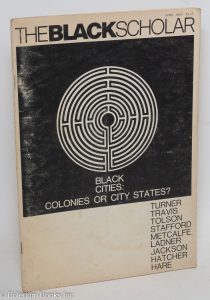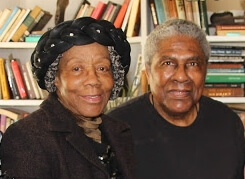 The National Council For Black Studies joins colleagues and communities around the world in marking and mourning the passing of Dr. Nathan Hare, a founding scholar and intellectual architect of the discipline of Black Studies. And we extend our deepest condolences to his family, friends and loved ones. Making transition June 10, 2024, at 91 years old, he leaves an essential and enduring legacy of teaching, scholarship, activism, counselling and institution-building. An exemplary activist scholar, Dr. Hare achieves national recognition as a professor of sociology at Howard University who wrote the Sixties classic, Black Anglo-Saxons, and joined the students in struggle and in writing a “Black Manifesto” criticizing “the negro college” and calling for a Black university with a relevant and liberating education.
The National Council For Black Studies joins colleagues and communities around the world in marking and mourning the passing of Dr. Nathan Hare, a founding scholar and intellectual architect of the discipline of Black Studies. And we extend our deepest condolences to his family, friends and loved ones. Making transition June 10, 2024, at 91 years old, he leaves an essential and enduring legacy of teaching, scholarship, activism, counselling and institution-building. An exemplary activist scholar, Dr. Hare achieves national recognition as a professor of sociology at Howard University who wrote the Sixties classic, Black Anglo-Saxons, and joined the students in struggle and in writing a “Black Manifesto” criticizing “the negro college” and calling for a Black university with a relevant and liberating education.
Dr. Hare is further recognized for his seminal work and struggle at San Francisco State which began with an invitation from the students in struggle demanding Black Studies and in extension, ethnic studies, a term he introduced to replace the term “minority studies”. He wrote the first proposal for a Black Studies program and department and became its first coordinator. Moreover, he was the cofounder and founding publisher of The Black Scholar, A Journal of Black Studies and Research, and lectured widely at university and community venues in the interest of a relevant and liberating education and the social liberation of Black people.
Black Studies and in extension, ethnic studies, a term he introduced to replace the term “minority studies”. He wrote the first proposal for a Black Studies program and department and became its first coordinator. Moreover, he was the cofounder and founding publisher of The Black Scholar, A Journal of Black Studies and Research, and lectured widely at university and community venues in the interest of a relevant and liberating education and the social liberation of Black people.
His was committed to the pedagogy and practice of liberation and developed some of the central concepts of Black Studies, building and expanding on them over the years. Indeed, his focus was always on education’s central commitment to the liberation and development of the community, Thus, he said, stressing the interrelated process of linking community and campus, “Such an education would bring both the college to the community and the community to the college” in mutually beneficial ways.
 With PhDs in sociology and psychology, Dr. Hare engaged various critical issues and was joined in this multidimensional work by his activist scholar wife, Dr. Julia Hare. Together they founded the Black Think Tank to address critical social issues, co-authored numerous books and published a periodical titled Black Male/Female Relationships. Both in his sociological and psychological works, Dr. Hare put great emphasis on building and strengthening the Black family and Black male/female relationships. Indeed, the Hares argued that in a context of unfreedom and oppression, daring to love is indeed a revolutionary, transformative and liberational act and contributive to strengthening personhood, family and community.
With PhDs in sociology and psychology, Dr. Hare engaged various critical issues and was joined in this multidimensional work by his activist scholar wife, Dr. Julia Hare. Together they founded the Black Think Tank to address critical social issues, co-authored numerous books and published a periodical titled Black Male/Female Relationships. Both in his sociological and psychological works, Dr. Hare put great emphasis on building and strengthening the Black family and Black male/female relationships. Indeed, the Hares argued that in a context of unfreedom and oppression, daring to love is indeed a revolutionary, transformative and liberational act and contributive to strengthening personhood, family and community.
In praise of the resourcefulness and resilience of Black people, Dr. Hare stated that “given the profound and complex nature of our oppression, it is nothing short of miraculous that we have been able to come this far”. But he noted, the struggle for full freedom is still unfinished and Black Studies activist scholars at every level of education and activism and others have a central role in this urgent and ongoing struggle. Thus, we can best honor his legacy by emulating and building on it in ways that continue to engage education, as he did, as a practice of freedom and to continue to struggle to expand the realm of freedom, justice and good in the world.